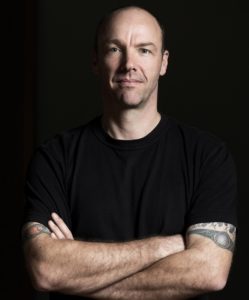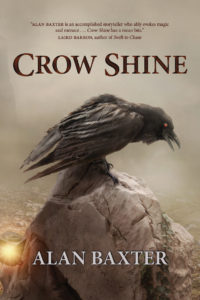Short stories can be a creative exercise used to explore a new idea. They can be entered into anthologies or submitted to magazines, and they can be repackaged into collections by the single author.

First of all, I feel like there needs to be a small caveat at the start here. Writing and selling short stories is not a great way to pay the bills. Some people manage this feat, but most don’t.
As with the majority of writing, a variety of different income streams contribute to an overall living. This is true of short stories too.
While you can certainly work your way up into the realms of pro-rate paying magazines and anthologies, that won’t happen overnight. You can also make money from short stories by selling reprints to podcasts, having collections published (or publishing them yourself), and so on.
A successful short story career can also work wonders to spread your name and open other doors of opportunity for you.
And it can serve as a gateway to your novels. So there’s definite benefit to writing short fiction, but only if you love the form and want to add it as one string among many on your writing bow. However, if you do love the form and you want to make a go of short story writing, here are my ten tips for writing short stories that sell.
- Understand that a short story is different to a novel, but it shares a fundamental similarity: it needs to have a coherent beginning, middle, and end. Anything else is a vignette, or something experimental. To sell a story, you need to tell a whole story. The skill is in only telling enough to keep it short, but retaining all that’s required for a satisfying read.
- You need to know way more about your story than you tell to your readers. What finally makes it onto the page is a distillation of the ideas, world-building, characterization and so on that you started with. You need to know
everything about all your characters and your story so that you can write with confidence in a tight and succinct form. You don’t have to tell your readers everything about a person’s history, but you need a good idea of it yourself, so that the small hints you do seed throughout the story are assured and authentic.
- Don’t try to write for a market. This applies to novels too, but it bears remembering. You need to write the stories you want to write, the stories you want to read. Tell the stories only you can tell in the way only you can tell them, then go looking for markets to sell them. There are so many online and print magazines and anthologies these days, that you’ll surely find somewhere eventually if the story is good enough.
- Rejection is the default. Thousands of stories pass through editor’s slush piles every year. You need to be persistent and understand that rejection happens more than anything else. A few people can sell pretty much anything they write based on their name alone, but for most of us, a 10 to 20% success rate is pretty good. So a story will likely be rejected several times before it finds a home.
- Accept semi-pro payments as you build your name and career. Eventually, it would be nice to only ever get paid pro-rates for all your work, but sometimes it pays to get your name noticed, to get published in places that will showcase your stories to readers and editors even if that doesn’t mean you get paid much. Never give your work away for free except in particularly worthwhile places (like a charity anthology, for example) but a low payment that puts your name among others more famous than you in your field will be a great career-building move and help you sell more stories in the future.
- Have a theme. You don’t need all your stories to follow a theme, and it doesn’t need to be a narrow theme, but have something recognizable. For example, I write science-fiction, high fantasy, crime and other stuff, but the majority of what I write is dark weird fantasy and horror. I’ve built a name for myself in that genre more than any other and I’ve won awards in that field. My new collection of short stories, Crow Shine, contains 19 stories, including 3 originals, that all fit under that dark weird fantasy and horror umbrella. The publisher picked up the collection based on the coherence of voice and style, even though the stories in there range from the wild west to Caribbean pirates to the modern Australian outback and beyond. There’s a thread of consistency in style, subject and voice that means those stories fit together into a collection, and therefore they get sold again, read again, and continue to further build my career.
- The biggest problem with most short stories is that they start too far back. More often than not, any short story by a beginner can be greatly improved by cutting away the first page, or even page and a half. Think about where the story really starts, right in the meat of the action or conflict. You can seed any backstory sparingly throughout as you move forward from there.
- Don’t just go for a twist. A lot of stories have a twist ending, but when you think about it, so do a lot of novels. Think about how many books you’ve read where you thought, “I never saw that coming!” That’s just good storytelling. If you buy into this idea that short stories need a twist at the end, the whole thing will become a vehicle for the twist and it will be trite and unsatisfying. Tell a story, not a joke.
- The best stories are when something else is happening too. Rather than just move forward with the single idea, because you’re constrained by a tight word count, develop the skill to flesh out your story with other stuff, just like real life. For example, you may be fighting a dragon, but perhaps you’re also going through a messy divorce. Or maybe you’re trying to deal with the ghosts that dog your night-time hours, but you’ve also got exams and the last year of college to complete. Monsters and single-parenting; a magical cave and bullying at school; a lake full of mermaids and a home full of anger. You get the idea. Don’t restrict your story to something completely isolated and linear, because life isn’t like that. Your story may be short, but it needs to be as complex as life. Balancing those two things is one of the real skills of good short story writing. And with regard to this, remind yourself about point 2. above.
- The real skill in short story writing is editing. No matter how good you think your story is, it can be shorter, tighter, more compelling. Learn to strip the fat relentlessly, hunt out and kill repetition of words, make every sentence sing. Flense your work to within an inch of its life before sending it out into the world.
Just like anything, short story writing is a skill, an art, and a craft. Read as many as you can to learn other peoples’ methods. Write as many as you can to develop your own ability. And, like all writing, never give up.
Have you every felt drawn to writing short stories? Have you sold a short story? Do you have any experience to share or questions to ask? Please do add a comment below and join the conversation.





Great article, thanks.
When you talk about “a 10 to 20% success rate”, do you mean that there is only a 10 to 20% chance of a particular story ever get published or that everytime a story is submitted to a magazine there is only a 10 to 20% chance of it being accepted (ie most stories will find a home somewhere eventually? I fear that I already know the answer to this, but am asking in the hope that I’m wrong.